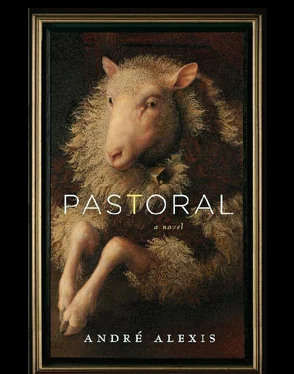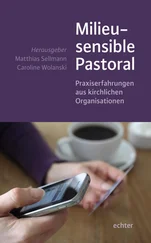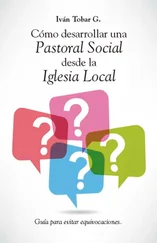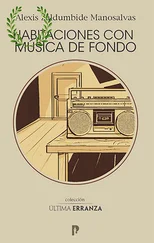Elizabeth chose to walk toward Regina and it was at Regina that she first saw Father Pennant, the priest who, it seemed, would preside at her wedding.
On this, his third afternoon in Barrow, Father Pennant was on his own. Lowther Williams had gone to Wyoming to deliver a supply of unconsecrated hosts to the church there. Before going, Lowther had recommended that Father Pennant visit ‘Regina,’ Barrow’s third mystery. Regina, source of the Thames River, was discovered in 1905 by an Englishman named John Atkinson. Regina was a vein of glass-clear fresh water that sprang from the ground, ran for six feet and returned underground. The water was cold enough to rattle teeth, in summer or winter. It ran in a narrow, stony depression that tapered at its ends so that, if your imagination was so inclined, the source of the Thames resembled a vulva, which is why Atkinson, attempting wit, named it ‘Regina’ to rhyme with ‘vagina.’ The name stuck, but it was now more often called ‘the Queen’ by the people of Lambton County, and it had become a kind of shrine where pregnant women — farm girls, mostly — went to pray for healthy children.
Father Pennant was unprepared for Regina’s beauty. The water ran so fast and constant, it was as if it did not run at all. Regina was like a solid section of crystal. Father Pennant kneeled to touch it and was surprised when his fingers parted the cold water.
It was like this that Elizabeth saw Father Pennant for the first time, coming upon him as he withdrew his fingers from the water. Startled, she apologized.
— Oh, not at all, said Father Pennant, rising. I was just admiring the Queen. Lowther told me how lovely it is, but it’s really something, especially here in the middle of nowhere.
— Yes, answered Elizabeth. Are you Father Pennant?
— Yes, I am. And you are?
— Elizabeth Denny. You met my aunt the other day. Anne Young?
— So I did. I remember. She seems like a nice woman.
They shook hands and then the two of them began walking toward the highway. Beneath the shade of the trees, neither could see the other properly, but when they came to the edge of the woods the sun was still shining and each saw the other as if for the first time. Father Pennant saw a striking young woman with light brown hair, a narrow nose, a gap between her front teeth. She was dressed in slightly baggy blue jeans, and a man’s work shirt beneath which she wore a pullover with three buttons (unbuttoned) at the neck. She wore wire-rimmed glasses that distracted, somewhat, from her eyes: hazel, expressive and beautiful. As they walked and spoke, he found himself happy in her company.
Elizabeth, for her part, did not take Father Pennant quite so deeply in. He was taller than she was and his hands were large, almost ungainly, like the paws of a young dog. Much more than that she did not register. He wore the uniform of the priest: black suit with a white clerical collar. Nondescript. Still, she was not uncomfortable in his presence.
They walked in the direction of town. Elizabeth would have to turn back long before they reached Barrow some seven kilometres away, but she was happy to converse, and their talk turned quickly from the general to the specific. That is, they began to talk about marriage, Elizabeth’s wedding, its arrangements, the changes marriage would bring to her life, the love she felt for her fiancé.
— Have you ever been in love? she asked.
— Yes, answered Father Pennant. I know people don’t think priests live full lives, but yes, I’ve been in love.
— Did you …? Have you …? You know … If you don’t mind me asking?
— I don’t mind, but let me keep that to myself until we know each other better. It’s very personal for me. But I have been in love and I do know what it’s like to want someone.
(Father Pennant knew very well what it was like to want someone. He remembered the taste of salt, the smell of a room in Italy, the touch of a hand on his back. And at the memory, the hair on the back of his head tingled as if he had been caressed.)
— Why did you become a priest, then, Father? I’m sorry if …
— No, don’t apologize. I became a priest because I thought it was my calling. It’s the way I wanted to be in this world. I believe in God and I think, as a priest, I can do good.
The occasional car or truck passed as they walked along the side of the road. The air smelled of the woods (a slightly fungal exhalation) mingled with the smell of the dirt road, the smell of weeds, the smell of spring.
— People tend to focus on our vow of chastity, Father Pennant continued. And I understand, because it’s an unusual choice. But it isn’t as if I have had an unfortunate accident. I’ve chosen the life I lead. I’ve had to learn the discipline. And I think it’s made me more sensitive to the things I’ve given up. But even if I’ve given up physical love, I haven’t given up on love itself. That would be perverse. I believe love is the most powerful thing in our lives. An earthly miracle. It’s what makes marriage so precious.
— You were in love, Father, but you weren’t married. Why should marriage matter, if love is such a miracle?
— Marriage is a way of saying love exists, saying it aloud, a way of sharing the thing inside you with your community. It’s an act of generosity made by two people. Maybe in the past it was about other things, but times have changed.
All of which was fine and true or fine and not true, as far as Elizabeth was concerned. Either way. She had no problem with love or marriage. Her problem, insofar as it was a problem, was with doubt and apprehension — not big feelings, small ones, but just as distracting. She would not be completely at ease until she knew what her doubts meant or how she was to take them. But she was grateful for Father Pennant’s advice.
When it came time for them to part, she for home and he for town, Elizabeth thanked the priest and shook his hand again before heading off. Father Pennant smiled and said
— See you soon
before turning his attention to the walk home.
In the distance, the sun was setting. A pink tinge grew slowly more scarlet on one side of the clouds and evening insinuated itself from above, turning the upper arch of sky indigo.
Father Pennant’s move to the country — away from civilization — was not without its inconveniences. The rectory’s wiring was ancient and unpredictable. Though the freezer and stove were reliable, the lights in the house sometimes cut out without warning and returned just as unexpectedly. It would have been too expensive to have the rectory rewired, so they learned to deal with the fickle lights. Father Pennant now understood his predecessor’s thing for candles. He made use of the many Father Fowler had collected. Every room in the house had its own brass candle holder and he grew accustomed to reading by candlelight, to sepia darkness punctured by candle flame.
The town took to its new priest without difficulty. Most of the Catholics in Barrow thought him likeable and sympathetic. The rest of the town treated him with the deference due a priest. So, it was not long before he felt welcome. Of course, the hallmark of welcome is being let in on gossip and, as is the case in any small town, there were innumerable rumours circulating, rumours about his parishioners and stories about people he did not know at all. The gossip Father Pennant heard most often concerned Lowther. No one said anything terrible about the man, not directly, but a number of people felt they had to warn Father Pennant about Lowther’s ‘lack of discretion.’ In other words, Lowther was considered a snoop, a tattletale and a man to be avoided.
As it happened, the person who most insisted on Lowther’s bad character was the first to die under Father Pennant’s rectorship: Tomasine Humble. Tomasine was no more specific about Lowther’s sins than anyone else, but she seemed to take personal offence at Lowther’s personality. So, hers were the bitterest condemnations. Mind you, Tomasine had never been known for the good she had to say about others. She was not, herself, fondly remembered, and there were few people at her funeral, when it came. Five, to be exact. Her light, narrow coffin was as simple as could be without being a pine box. It stood in the centre aisle of the church, unencumbered save for, atop the coffin, a framed black-and-white picture of Tomasine Humble as a young woman. Neither beautiful nor homely, the younger Tomasine was merely the beginning of a long distortion whose end was the bent and unhappy old woman Father Pennant had met on his first day as St. Mary’s rector.
Читать дальше












